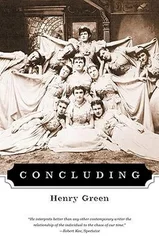“After the Absolution, at which the Princesses and peeresses are never present, we were told, when we got back to the Archbishop’s, that Madame d’Egmont had been taken ill as she came up the aisle, and that she had cried out as she was falling.
“I found her waiting for me at home. She was deathly pale. She could only just speak. All I could get out of her was that, as she was about to take her place by the catafalque, she thought she had seen the Count de Gisors. ‘You won’t laugh at me will you?’ she begged, ‘I saw him, I know I did, and it almost killed me.’
“I told her that Monsieur de Nivernais had spoken of a young private soldier exactly like Monsieur de Gisors, and that it was probably this man who had been on guard at the catafalque. Septimanie burst into tears. ‘Don’t you see, it must be Severin his younger brother,’ she sobbed, ‘the boy I’m to give the Vidame’s legacy to. I promised. Now that I have to see him again I’m terrified.’
“From this point onwards you will not find me so well informed, my child, and I confess to you that it would ill become me if I were. However, Madame d’Egmont did tell me some months later, in an embarrassed sort of way, that she had summoned Monsieur de Guys, secretly, to a church. She had joined him on foot, without any of her servants, and had handed over the £10,000 given to her by the Vidame for that purpose. But I saw a blush on her forehead as she was telling me. I had an idea she wanted to say more, and that I was not having the whole story. But I was careful to do nothing to persuade her to go any further with me, for I feared she might find herself confiding, or even attempting to explain away, certain things that I should have been embarrassed to learn. Because I did not wish to encourage her in this affair, which in any case, I imagined, was over and done with. All I said was, I could only be surprised and vexed that she had met him in church …. My child, she lowered her great eyes at that, and bit her lip. Then I changed the subject abruptly. It hurt me to do this. But I could see she understood, and from that time on I saw less of poor Septimanie. Indeed it must have been five or six months before I heard tell of Monsieur de Guys again.
“I had gone to dinner at the Richelieu’s. I remember it was the night of a great storm. The Marshal asked me if I meant to pay my respects at Versailles the next day, and dine with their Majesties. I told him I had planned to do so. ‘My daughter ought to go,’ he said. ‘Which of you will take the other?’
“I had always had a very good idea that I was the person with whom he best liked his daughter to go out, and I thought I saw that the sharp old man had noticed how we were no longer quite what we had been to each other. What he had in mind was to put us in one carriage. He imagined this was all that was needed to bring us together again. We exchanged looks, and smiled, his daughter and I.
“As we travelled down to Versailles the next day in her state carriage, I thought I had never seen Madame d’Egmont in such brilliant looks, or more superbly dressed. She was wearing the family pearls, those on which the Republic of Venice once lent such a large sum to Count Lamoral d’Egmont, to finance the war against King Philip, and which were without price, they were so valuable. But I flatter myself her jewels were not the only ones to attract attention that day. For I had brought out the diamonds you will inherit with the family heirlooms. The moment she set eyes on them the Queen sent for me to get a closer view of the Lesdiguière diamond. It was then and there admitted that this was a far finer stone than any of her twelve Mazarin diamonds. Commander d’Esclots, my uncle, and who was making the circle, was so absolutely delighted that it was only after some little trouble that I could persuade him not to write to the Queen to thank her for what she had said. The good old man belonged to a generation when the least word from royalty was too valuable for anything. But he was the old-fashioned sort of Frenchman. He died without having been persuaded it could be a fact that Madame Lenormand d’Etioles had ever had an apartment in the Palace of Versailles, nor, above all, that she could, by any fantastic stroke of the imagination, have been ennobled under the title of Marquise de Pompadour.
“At State dinners in those days the public came quickly in by one door, and were hustled out by the other, thus making a quarter circle round the royal table. We were seated on the right of the King, near the door the public was let in by. Madame d’Egmont was next me, and last in the row. That is to say she was nearest to the flow of people.
“The first thing I knew was a kind of awkward murmuring, which was kept low, no doubt out of respect. Then, when I looked up, I saw the officer in charge of the King’s Guard speak to a private soldier who was one of the public, but who kept on staring fixedly at Madame d’Egmont. He was a beautiful young man. His face and appearance, in spite of his rank, were brilliant, and would have graced anyone in the kingdom. Can you doubt who it was? But because I was not continually thinking about Monsieur de Gisors, and that I never wondered about Monsieur de Guys, I was not, at that instant minute, struck by how alike they were.
“I instinctively turned to Madame d’Egmont. I could not whisper on account of the hoops we were wearing, and the space, left in accordance with what was usual at Court, between the stools on which we were seated. Because the poor lady was so upset that it was plain for all to see. Her eyes were glazed, and she was even holding a fan half across her face (a thing which could not be done at Versailles in my day, for one never took the liberty of opening one’s fan before the Queen, except to use it as a salver if one had occasion to hand anything to her Majesty). Meantime the young man, not bothering about the King’s presence, and without paying the slightest attention to the officer in charge who was ordering him to move on, was frozen before the lovely Septimanie in her black Court dress. He was holding up the people behind by standing where he was, as well as getting in the way of the gentlemen waiting at table. He did not listen and knew nothing at all of it. In the end they were obliged to drag him from the room. Then it was that Madame d’Egmont could control herself no longer. She moaned. I felt quite desperate for her.
“The King, who, through the secret police, always knew everything going on in Paris, even to love affairs, his Majesty, at this moment, acted with that instinct for the right thing which ever distinguished and honoured him. ‘Monsieur de Jouffroy,’ he said to the officer in charge loud enough to be heard by all, and turning his head in our direction without, however, looking at Madame d’Egmont, ‘Monsieur de Jouffroy it must be the style in which our meal is being served has surprised him,’ and then he added, bowing to the Queen, with an adorable smile, ‘or perhaps he was lost when he saw her Majesty. Leave the young man alone, run and tell them to let him go in peace. At the same time I thank you for what you have done.’
“Madame d’Egmont sighed. She seemed relieved. She began to look a little better. But people had started whispering, and the Marshal de Richelieu could not forbear to glance angrily at her once or twice.
“I felt most miserably sorry.
“Then, as we got into our carriage to go away I heard, over on the side she was sitting, a deep, trembling, man’s voice say, almost in terror, ‘it’s you — it’s truly you.’ I could not see who this might be, and I did not catch what Septimanie answered. All I know is she said no word on the drive back to Paris. In fact she did nothing but cry her eyes out the whole way.
“The next morning I was just going to the Richelieu’s to see Madame d’Egmont when they came to tell me her father was downstairs. He was a cunning old man. No doubt he counted on catching me unawares, to surprise me into telling what little I knew. But Marshal de Richelieu was not the sort of person with whom I cared to discuss anything of that kind. Dissolute men of his type are invariably wrong, on these occasions. They imagine that any sympathy, which may be expressed for a person in love, must include tolerance of what, in this instance, was something unquestionably underhand. Then they cannot grasp ordinary, nice-natured good wishes. In fact they can never explain, to their own satisfaction, how there may be a halfway house between absolute austerity and open acquiescence. So they make the most abject mistakes about honest women.
Читать дальше












